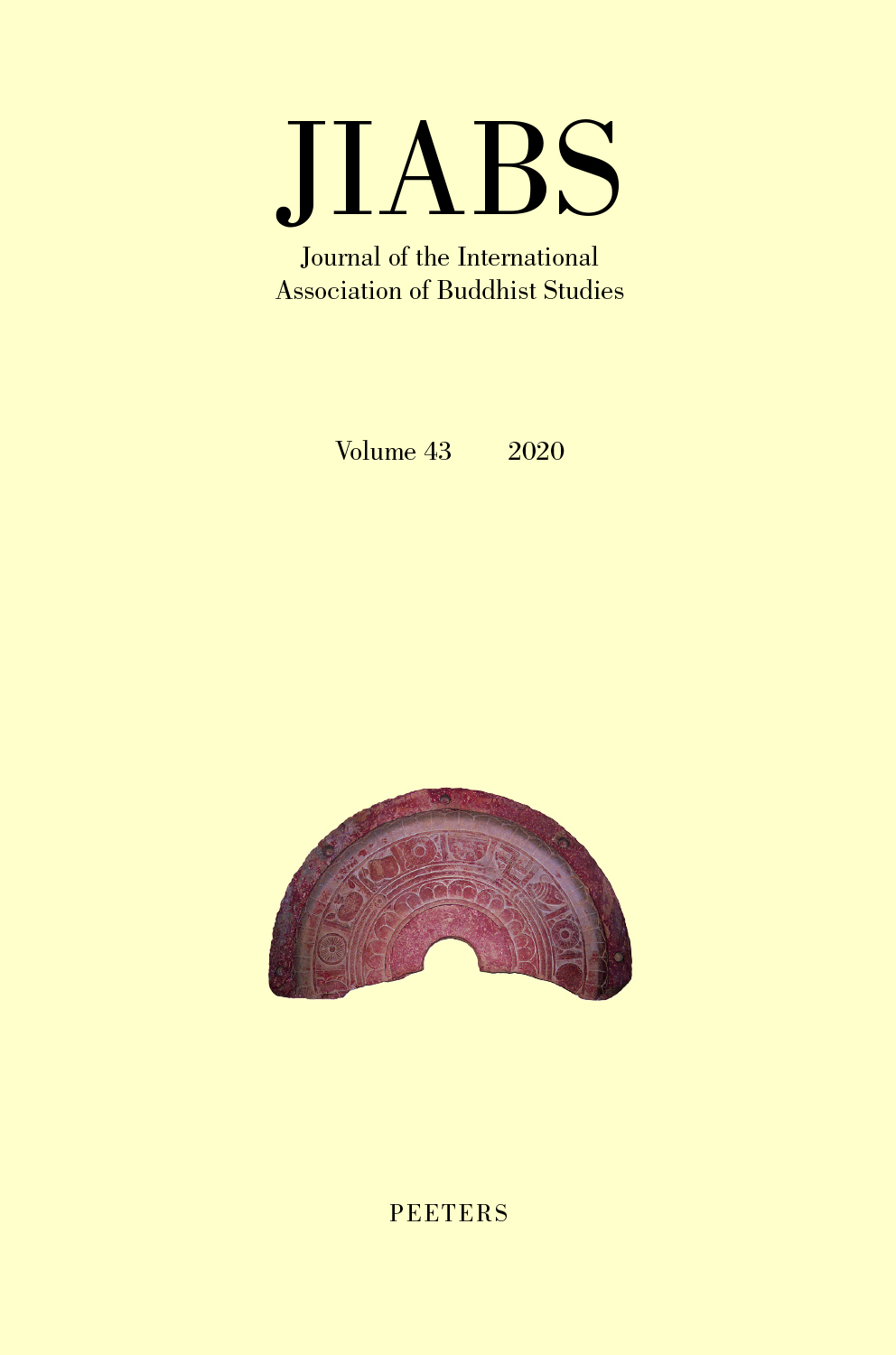 previous article in this issue previous article in this issue | next article in this issue  |

Preview first page |
Document Details : Title: How to Contemplate 'Internally' and 'Externally' in the Satipaṭṭhāna Meditation Subtitle: A Philological Investigation Author(s): LIN, Qian Journal: Journal of the International Association of Buddhist Studies Volume: 42 Date: 2019 Pages: 315-360 DOI: 10.2143/JIABS.42.0.3287482 Abstract : The Satipaṭṭhānasutta teaches the meditation practice of contemplating four types of objects (body, feelings, mind, and mental qualities). Its refrain instructs the meditator to contemplate each object 'internally' (ajjhattaṃ), 'externally' (bahiddhā), and both internally and externally (ajjhattabahiddhā). What 'internally' and 'externally' mean in this context have puzzled both ancient commentators and modern practitioners. The dominant traditional interpretation understands 'internally' as referring to oneself, and 'externally' to other beings. This study surveys various interpretations preserved in both northern and southern commentarial and Abhidharma texts, including the Pāli Abhidhamma and commentaries, the Śāriputrābhidharma, the Dharmaskandha, the Mahāvibhāṣā, the Da zhidu lun (*Mahāprajñāpāramitopadeśa), and the Śrāvakabhūmi. Most of these interpretations gloss the adverbs ajjhattaṃ and bahiddhā as adjectives and devote great efforts to classify relevant phenomena as internal or external. However, this study suggests that the 'oneself vs. other beings' interpretation does not fit well in the context of early Buddhist sūtra texts. With the help of passages from Āgama/Nikāya sūtras, the author proposes that the adjectives 'internal' and 'external' more likely refer to the subjective and objective aspects regarding a meditative experience. Moreover, in the sentence ajjhattaṃ/bahiddhā kāye kāyānupassī viharati, the adverbs ajjhattaṃ/bahiddhā qualify the verb instead of the noun, hence it should be more suitable to understand the sentence as 'considering the body as the subjective/objective aspects of experience'. Such an understanding can also be supported by the interpretation proposed in the Mahāvibhāṣā that relates the internal/external contemplations to the elimination of the 'personal entity views' (satkāyadṛṣṭi/sakkāyadiṭṭhi). Fatal error: Uncaught mysqli_sql_exception: Column 'lib_id' cannot be null in /srv/data/web/vhosts/poj.peeters-leuven.be/htdocs/secure/POJ/tracker2.php:212 Stack trace: #0 /srv/data/web/vhosts/poj.peeters-leuven.be/htdocs/secure/POJ/tracker2.php(212): mysqli_query() #1 /srv/data/web/vhosts/poj.peeters-leuven.be/htdocs/article.php(579): track2_page_hit() #2 /srv/data/web/vhosts/poj.peeters-leuven.be/htdocs/content.php(634): include('...') #3 {main} thrown in /srv/data/web/vhosts/poj.peeters-leuven.be/htdocs/secure/POJ/tracker2.php on line 212 |
